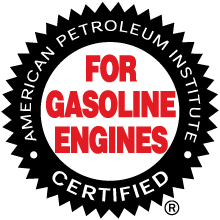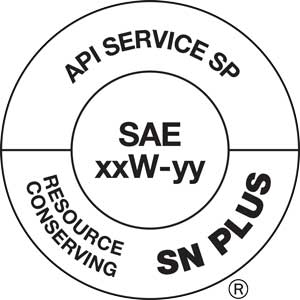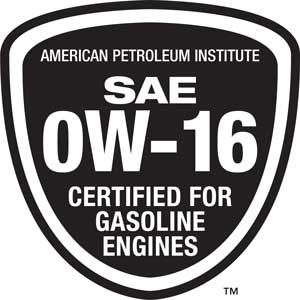Engine Oil Licensing & Certification System (EOLCS)
API’s Engine Oil Licensing and Certification System (EOLCS) is a voluntary licensing and certification program that authorizes engine oil marketers that meet specified requirements to use the API Engine Oil Quality Marks. Launched in 1993, API’s Engine Oil Program is a cooperative effort between the oil and additive industries and vehicle and engine manufacturers Ford, General Motors, and Fiat Chrysler and those represented by the Japan Automobile Manufacturers Association and the Truck and Engine Manufacturers Association. The performance requirements and test methods are established by vehicle and engine manufacturers and technical societies and trade associations such as (ASTM), (SAE), and the American Chemistry Council (ACC).
The Engine Oil Program is backed by a monitoring and enforcement program that ensures licensees adhere to program requirements. This includes running physical, chemical, and performance tests on licensed engine oils and verifying that the API-registered Marks are properly displayed on containers and convey accurate information to consumers.
About half of the program’s licensees are based in the United States, and the other half are spread around the globe. A complete list of licensees is available on our licensee directory.



API has been developing Motor Oil Standards for over 75 years.
Download our timeline infographic and follow the history of API motor oil standards.
The program’s requirements are described in API 1509, Engine Oil Licensing and Certification System. This standard describes the program’s performance requirements, explains the current engine oil service categories, shows how the marks are to be used, and explains the monitoring and enforcement program. Standards referenced by API 1509, such as ASTM D 4485, Standard Specification for Performance of Engine Oils, and SAE J300, Engine Oil Viscosity Classification, also play a critical role in defining the program. These can be purchased through their sponsoring organizations.
Monitoring and Enforcement Program
API has been testing packaged and bulk engine oils under its Aftermarket Audit Program (AMAP) since 1994. AMAP replaced the Oil Labeling Assessment Program (OLAP), a testing program jointly funded by the U.S. Army, the Independent Lubricant Manufacturers Association (ILMA), the former American Automobile Manufacturers Association (AAMA), and API.
Under AMAP, API-licensed engine oils are purchased in the marketplace and tested to determine their physical, chemical, and performance properties. The results are compared to licensee formulations on file at API. Conforming oils show test results that are consistent with the formulations on-file and meet program requirements. All samples undergo elemental analysis, viscosity at 100°C, and high-temperature/high-shear testing. They may also be tested for cold cranking, pumpability, volatility, gelation, foaming, filterability, flash point, and shear stability. Product packages are checked to make sure they correctly display the API Marks and carry product trace codes and bulk oil receipts are checked for compliance with NIST Handbook 130 requirements.
Enforcement
If a licensed oil does not match the physical and chemical data on file with API, API will work with the licensee to evaluate the nonconformity and take appropriate corrective action. Unresolved nonconformance issues are subject to additional enforcement actions spelled out in API 1509. Actions may include termination of the license to display the API Marks and removal of noncomplying product from the marketplace. If a licensed or unlicensed oil displays an improper label or unauthorized or inaccurate labeling information, API will require the marketer to cease and desist from committing the violation and will request verification that the violation has been corrected.
In addition to sampling licensed oils, API also samples and tests products encountered in the marketplace that are using the API certification marks without the authorization of API. To view a listing of these products please click here.
To report a problem, concern or a trademark question please email EOLCS@api.org.
Did you know used oil can be re-refined into base stock for lubricating oil.
- There are many practical uses for used motor oil. A primary use is to rerefine it into a base stock for lubricating oil. This process is very similar to the refining of crude oil. The result is that the rerefined oil is of as high a quality as a virgin oil product.
- A secondary use of the used oil is to burn it for energy. Large industrial boilers can efficiently burn the used oil with minimum pollution. As a result some used oil is sent to power plants or cement kilns to be burned as fuel. On a smaller scale small quantities of used oil are burned in specially designed heaters to provide space heating for small businesses.
If you recycle just two gallons of used oil it can generate enough electricity to run the average household for almost 24 hours.
Cars are an indispensable fact of life for most of us. So, too, are abundant and clean supplies of drinking water. What we do with the used oil from our cars plays an important role in balancing our desire for convenient transportation with our desire for a clean and healthy environment today and for future generations.
We are all familiar with recycling newspapers, aluminum cans, glass and plastic bottles, but you may not be aware of the efforts of the petroleum industry and other groups to promote used motor oil recycling: providing convenient collection sites for the purpose of keeping used motor oil out of our waterways and ground water supplies and getting used oil into the recycling system.
Motor oil has value even after it has been drained from an engine. The oil you take to a collection center to be recycled saves energy. It can be reprocessed and used in furnaces for heat or in power plants to generate electricity for homes, schools, and businesses. It can also be sent to a refinery that specializes in processing used oil and re-refined into lubricating base oils that can be used to formulate engine oils meeting API specifications.
What can you do?
If you change your own oil, be certain that you take it to a collection center for recycling. If you take your car to an automotive service outlet, you can be fairly certain that they recycle the oil that they change. But if you're not sure, ask.
Used motor oil that is collected by "do-it-yourselfers" is critical to the used oil recycling system. Next time you change your own oil, remember, you can make a difference by recycling the oil from your car, truck, motorcycle, boat, recreational vehicle or lawnmower. By dropping off your used motor oil today you help prevent pollution and conserve energy for a safer and healthier tomorrow.
Additional Resources



